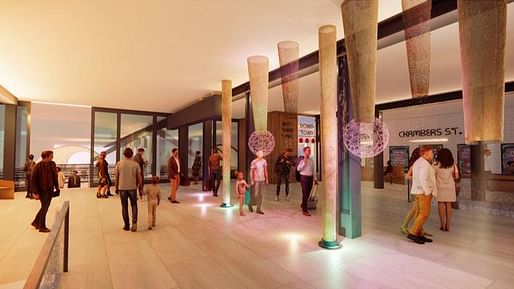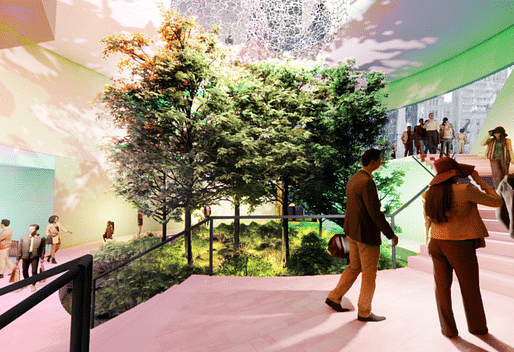
Fulfilling a dream to become a licensed architect can be an arduous process. First, students must earn a degree from an accredited school; then, they have to complete 3,740 hours practicing under a licensed architect; and finally, they are required to pass exams in six different practice areas. “All of that is very hard on people,” says Mark Rukamathu, faculty and Director of Special Projects at The Boston Architectural College (BAC). “On average it takes 12.8 years from the time somebody starts school to when they become a licensed architect.”
Making matters worse, Mark adds, in most cases, the state licensing laws do not allow students to take exams while earning their degree, but require them to figure out how to complete them on their own after graduation. “Especially if they have special circumstances, such as a family, achieving all of these requirements within a timely fashion can be very difficult.”
To respond to those demands, the BAC has implemented the Integrated Path to Architectural Licensure (IPAL), an accelerated program that allows students to earn their practice hours and take their exams while attending school, so they can apply for their architecture license upon graduation. The BAC joined the program in 2015, one of a small number of schools initially accepted by the National Council of Architectural Registration Boards (NCARB), and still only one of a limited number of schools nationwide to offer the program. Since launching it seven years ago, the BAC has graduated 13 IPAL students—more than any other architecture school in the country.
The reason for its success, says Mark, is the BAC’s structure as a concurrent education institution, which allows students to work professionally at the same time they take classes and studios. “We want you to work while you are going to school, and we provide the support to do that,” he says. “So students get the experience they need and are able to take exams much sooner.” The IPAL graduates come from all walks of life and types of work, but they are united by a desire to work hard while at school so they can start building their careers more quickly.
Karen Wenschhof
M.Arch'21 Online | IPAL Graduate

Karen Wenschhof had never had a problem working while attending school. When she was in college twenty years ago, her father got sick with a brain tumor, and she was forced to work days to support the family while attending liberal arts classes at night. “It was hard, but at the same time it was very rewarding because I always knew I was working towards a goal,” she says. “It really helps you appreciate and understand the work, and gives you the tenacity to keep going.”
When she began pursuing her architecture degree at a university in New Jersey a few years ago, however, she found it impossible to balance classes with her full time job as an interior designer. “I was disheartened because they only had classes during the day, and demand for studios was insane,” she says. In addition, the studios often focused on unrealistic designs far from her working experience. “You’re designing a building in Venice that’s floating on water—which is cool, but also disconnected from the reality of someone who is practicing here in America.”
Hearing about the IPAL program at The Boston Architectural College (BAC), however, she realized there was a program that not only accommodated students’ working lives but also expected them to work while attending school. “It was the opposite of all of the schools I’d looked at previously,” Karen says. “It really made me feel like there was a potential to finally make my dream come true.”
Karen had wanted to be an architect since she was young, when her mother, a history buff, took her on house tours and pointed out historical details. “We’d go to a Frank Lloyd Wright home and she’d say, look at this molding, or look at this door, Karen,” she says. “I just fell in love.” Daunted by the workload of an architectural degree at that time, however, she earned a communications degree instead, and ended up working in marketing at an engineering firm. There, she hit it off with one of the partners, who invited her to join him in opening their own firm a decade ago. “It was my Jerry Maguire moment,” she says. “He said, ‘What have you got to lose?’”
They opened NADER|House of Design, the engineering and design firm where she still works today. Karen earned her interior design degree at night and loved planning interior spaces for clients. Even so, she was frustrated with always needing an architect to sign off on her designs, longing for her own degree. “There is something about being an architect that is more than a career, it becomes part of your personality,” she says. “It’s like being a doctor—it’s who you are.” Coming to Boston for the BAC’s first 10-day intensive, Karen felt immediately at home. “They made you feel like you were part of the community, and brought you to work on real sites,” she says. “I immediately liked the idea that it was more grounded in a real situation.”
She also liked that she could return to New Jersey and continue running her firm while taking classes and studios online during nights and weekends. “The professors worked really hard to make students feel like they could succeed,” she says. “The whole environment was very welcoming to someone in a situation where you are working full-time.” On the flipside, she worked to squeeze in school wherever she could, studying early mornings and weekends, and sometimes taking days off work to catch up on studies when school work was particularly intense.
For her thesis, Karen took on the redesign of a subway station in New York City, researching the importance of sensory experience for commuters. She ultimately created a design that used cut-outs in the street to bring natural light and fresh air underground. “The idea was to allow them to connect more with their environment, and hopefully connect with themselves as well,” Karen says. Being able to earn her degree and complete the hours for her license at the same time helped her get more out of both work and school, Karen says. “You get the benefit of real-life experience,” she says. “At the same time, you’re going to be a much more valuable asset to a firm.”

While New Jersey doesn’t yet recognize the IPAL program, Karen was able to pass her exams and obtain her license in Connecticut upon graduation last fall. In April, she earned her New Jersey license through a reciprocity agreement. Now after so many decades, she can finally put the word “architect” after her name. “I look forward to taking over the design practice in its entirety, and being able to interact more with clients and get into some more exciting work,” she says. “I’m now able to say, ‘Yes, I’m an architect.’”

The #BACbuzz blog will help to inform, educate, and share relevant and noteworthy architectural and design news happening within the Boston Architectural College and around the Boston community.
No Comments
Block this user
Are you sure you want to block this user and hide all related comments throughout the site?
Archinect
This is your first comment on Archinect. Your comment will be visible once approved.